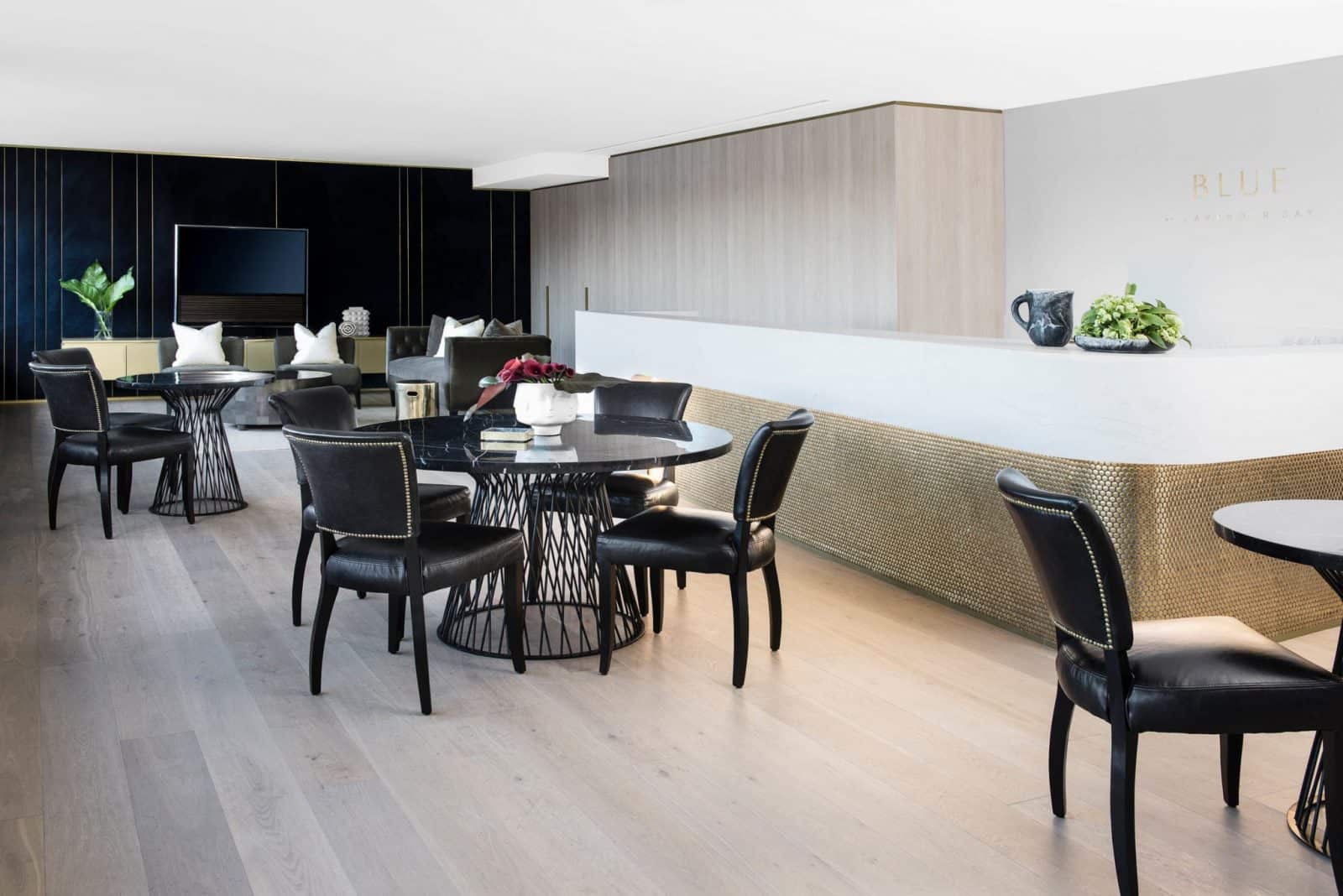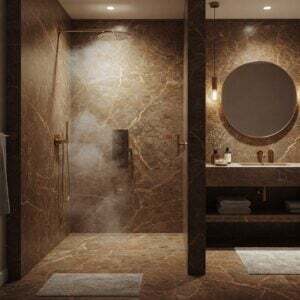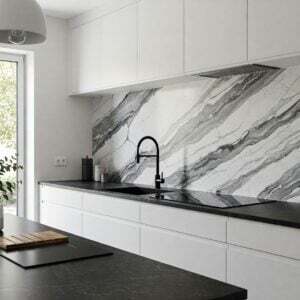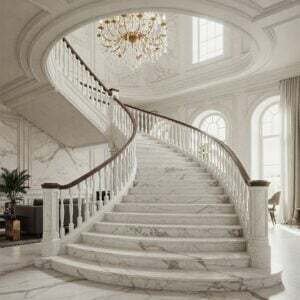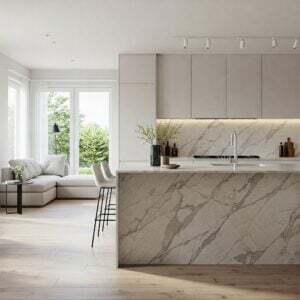For thousands and thousands of years humans have been using stone to build their houses, inside and out. Modern day homeowners are no different. Only now, thanks to our ever progressing and increasingly sophisticated technology, we’re discovering newer and smarter ways to use, source and even create stone.
When it comes to kitchen and bathroom benchtops, stone has been a popular choice for some time. Both in terms of style and practicality, stone is a superb material to consider using for your benchtop. The question is which type is better: natural stone or engineered stone?
What is natural stone?
As its name suggests, natural stone is formed and found naturally in the earth. Quarried with skill and transported with care, natural stone is found in homes all around the world. Whether the stone in question is from a quarry in Italy, Greece, England or anywhere else, each slab promises to be unique in its pattern.
What are the benefits of natural stone benchtops?
Hardiness
Natural stone is a hardy and tough material. When used in a kitchen or bathroom benchtop it proves to be both long lasting and resistant to the most frequent of scratches and chips. Additionally, when resealed properly and regularly, natural stone is also resistant to staining from spills, especially when cleaned up quickly.
Unique Aesthetic
Every slab of natural stone is unique in its own right. The exact pattern of veining and shading will be exclusive to that specific piece. Natural stone is perfect for customising a look: from tone to colour to pattern. If your kitchen benchtop is intended to be a central piece of art in your home, this is definitely a huge drawcard! Similarly, if you’re planning to spruce up your bathroom to a whole new level of luxury, natural stone will certainly do the trick.
Bonus Pro: UV Resistant
A lesser known pro of using natural stone is its naturally higher resistance to UV. Like stone found in nature, natural stone has evolved in prolonged, intense sun exposure. If your benchtop is likely to experience more sun through windows or even as part of an outdoor dining table-top, natural stone should be strongly considered.
What are the cons of natural stone benchtops?
Porous
While natural stone is scratch resistant, it is by no means scratch proof! Compared to other benchtop materials, natural stone is quite porous. Regular cleaning and resealing is important to maintain its luxurious aesthetic. Yet, while porous, it still can be very heavy so make sure you have the necessary reinforcement structurally to bear your slab’s weight.
Expense
Generally, natural stone is the more expensive type of stone benchtop. Though it is important to note that, if properly cared for, its long-term resilience could still prove to be more cost effective over a period of time. The other thing to note about the price of natural stone is that because it’s not manufactured in a factory—where quality can be more easily controlled—a highly expensive price tag on a slab of natural stone may not be indicative of its higher level of quality.
What is engineered stone?
Engineered stone is a stone that is manufactured in a factory. While the main component of engineered stone is quartz, one of the strongest minerals in the world, the rest of it is completely man-made. Engineered stone has been used in homes and as stone benchtops for over 40 years.
What are the benefits of engineered stone benchtops?
Resilient/Hygienic
Thanks to the resilience of quartz, engineered stone benchtops are scratch, chip, and stain resistant as well! But its real benefit when compared to the more porous natural stone is that it’s more hygienic for use in areas where liquid and water is likely to be spilled. This makes engineered stone benchtops a great choice for both kitchens and bathrooms!
Customisable
Engineered stone is manufactured by machinery with set ingredients and using consistent processes. This not only makes the price of the engineered stone benchtop a more consistent reflection of its quality, but it also means that the size and shape of your benchtop can be more easily customisable and not dependent on the size of the slab extracted from the quarry. Of course, the maximum size limits will vary from manufacturer to manufacturer though.
Bonus Pro
For those environmentally conscious home-designers, engineered stone benchtops offer a greener option. Due to the significantly less energy required to produce engineered stone, if sustainability is a high priority for you, this is the way to go.
What are the cons of engineered stone benchtops?
Quality Sensitivity
While engineered stone can certainly be cheaper than natural stone, its price is also more reflective of its quality. Take care to consider the application of your engineered stone and what it’s likely to be exposed to: both heat and certain chemicals can damage your benchtop.
Sample Shade
It is true that due to the manufacturing process engineered stone benchtops are more consistent in style, but you still need to be careful when choosing your sample. Why? Depending on the quality and percentage of quartz used, the actual slab of engineered stone might not be the exact same shade as the sample stone you chose. This unlike choosing a natural stone benchtop, when you often choose the very slab itself and not a different sample.
Conclusion
Which should you choose for your kitchen/bathroom benchtop: natural or engineered stone?
Ultimately, the choice is still up to you! Both are great choices and come with pros and cons. Have a think about what sort of aesthetic you prefer, what your budget is, what practical considerations you need to take into account and what your priorities are for your benchtop.
If you still can’t decide, then just get in touch with the expert team at Euro Marble today!

